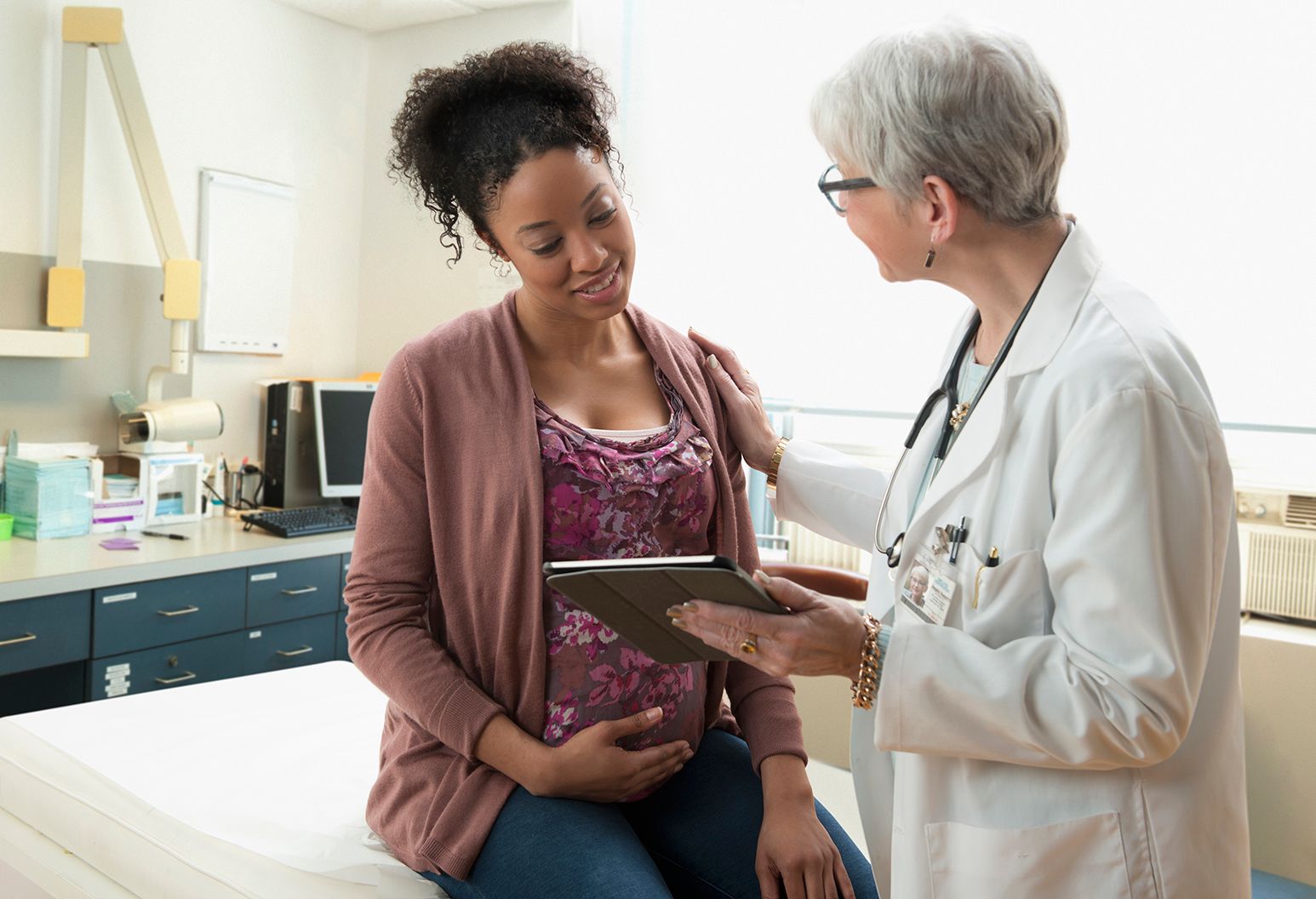Expert insights
Race shouldn’t impact a woman’s maternal health, but it often does

The COVID-19 pandemic laid bare racial disparities in health care in the United States, as Americans of color and immigrants disproportionately fell victim to the disease. Yet there’s another tragic epidemic that highlights racial inequity in this country
The United States has a stunningly high maternal mortality rate. In 2018, there were 17 maternal deaths for every 100,000 live births in the U.S.—a ratio more than double that of most other high-income countries such as Canada, France, the United Kingdom and New Zealand. Almost half of these deaths are Black women. Moreover, Black mothers are three times as likely to die than white women while pregnant or after giving birth. While most of these deaths occur in the first six weeks postpartum, a greater proportion of deaths in Black women—almost a third more—occur within a window of six weeks to a year afterward.
One reason maternal morbidity is so high among Black women is a lack of access to health care. When New York state expanded its Medicare eligibility in 2014 as part of the Affordable Care Act, we saw a demonstrable reduction in postpartum deaths, especially among minority women. It was inspiring, but also sad; it’s evident that when we give women medical care, they do better.
Yet that’s only part of the story. To fully eradicate racial disparities in this area, we need to go beyond simply providing free medical care. We need to recognize that many Black women may be apprehensive about seeking out health care providers in addition to the fact that medical care can also be difficult for them to access.
None of these issues are insurmountable, but they’ll require ingenuity and compassion to solve.
In my opinion, here’s what we need to do to advance true health equity:
Expand Medicaid eligibility across the United States. To erase racial disparities in maternal mortality, we need to ensure that every woman who requires medical care gets it. Here in New York, recent research shows that the state’s expansion of Medicaid eligibility in 2014 helped to reduce severe maternal morbidity in low-income women, especially minorities. Researchers theorize that these women sought out prenatal care more often and earlier in their pregnancies, and were more likely to seek immediate medical care if they experienced a pregnancy complication. But it’s not just who can get Medicaid—it’s also for how long. If every state extended Medicaid coverage for pregnant women for a full year after birth, it would be an important first step in eliminating health care disparities and improving outcomes. Post-delivery—the first 100 days after birth—is an especially critical time for women to have access to health care, because that’s when the most complications occur.
Recruit more Black physicians. There is no doubt that racial and ethnic inequities and implicit bias can be found in the health care system, which impacts Black women’s pregnancy and postnatal care. Case in point: While the infant mortality rate in the U.S. is more than twice as high for Black infants as it is for white infants, a study published last year in the Proceedings of the National Academy of Sciences found that when Black newborns are treated by Black physicians after birth, that mortality disparity shrinks dramatically. And it’s also important to remember that it’s a bi-directional process: Patients may also treat doctors and nurses differently based on their background. One of the reasons why medical schools in this country are so interested in recruiting more Black physicians is that they know patients are more likely to go to a doctor in their community who looks like them. When women feel comfortable with their medical providers, they’re more likely to access the care they need.
Make health care more accessible via telehealth. I’m a big fan of the Affordable Care Act, but it’s not enough to simply “provide” health care to pregnant women. They may require other assistance, such as transportation or child care. That’s one reason why telemedicine can play such an important role. A study that we published last year in the American Journal of Obstetrics and Gynecology MFM found a significantly lower rate of no-show and patient-canceled appointments among high-risk obstetrics patients when providers used telehealth. This holds true even postpartum; you can tell a new mother with preeclampsia to keep tabs on her blood pressure, but it’s often easier said than done. The woman may not be able to easily get to her provider’s office to get it re-checked, and she may not be able to afford a home monitor. One simple, inexpensive solution is to use her phone. We can use chatbots to check in with patients, and if any concerns are flagged, we can have a nurse follow up. Ideally, it would be great to see an at-risk patient fitted with a Bluetooth blood pressure monitor that sends results electronically to her physician’s office to be downloaded into her medical records. This way, her medical provider can keep tabs on her and sound the alert if she has elevated readings.
The deaths of Black mothers in the U.S. are a national tragedy. We need to make their prevention a priority in the United States. But to do so, we also must realize that there’s no single action or policy solution to remedy the problem. We need to work with hospitals, medical providers, legislators, community organizers and women themselves to solve this important and urgent public health crisis.




